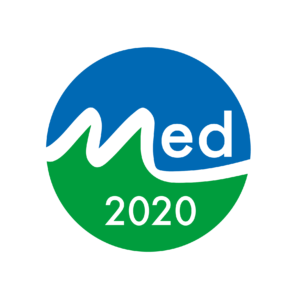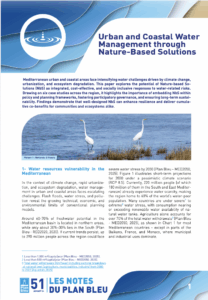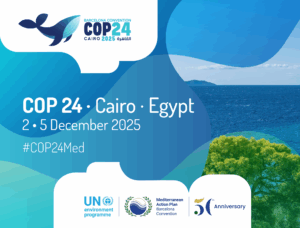
From 16 to 18 November 2020 took place MED 2020, an online conference organized by the Mistral, the MedECC and Plan Bleu which brought together more than 280 participants. Inspired by the achievements of science interfaces, this three-day conference for Mediterranean decision-makers was the opportunity to take stock of scientific knowledge and the challenges that the Mediterranean environment will face in the decades to come.
Debate on climate and environmental issues in the Mediterranean
The themes addressed during this conference include: the evolution of the Mediterranean climate in the 21st century and its impacts on the environment, extreme events (floods, heat waves, marine submersions), the management of water resources and the amplification of droughts , the problems of the link between pollution and health, the flow of contaminants from water, air and soil into living organisms, the proliferation of invasive species on land and at sea and the loss of biodiversity. The MED 2020 conference was an opportunity for the organizers to present the conclusions resulting from their respective work:
- The release of the new Report on the State of the Environment and Development in the Mediterranean (SoED 2020) coordinated by Plan Bleu within the framework of the Mediterranean Action Plan (MAP / UNEP);
- The first assessment report on the risks and impacts of climate and environmental changes in the Mediterranean of the MedECC, which will be accompanied by a summary for decision-makers, discussed with stakeholders and authorities of the Mediterranean basin;
- The conclusions of the unprecedented MISTRALSprogram, organized into six programs and two transversal actions allowing the deployment of multidisciplinary research to study the impacts of climate change and environmental modifications on the habitability of the Mediterranean basin in the 21st century. This event and the final conference will be an opportunity to present an assessment of the scientific advances made in 10 years and to discuss the legacy of this unprecedented program.
High-level political and civil society representatives were invited to participate in the opening and closing sessions as well as panel discussions around the scientific sessions. A very successful conference, with more than 280 scientists and decision-makers.
#MED2020 Table ronde systèmes écologiques et #biodiversité
Khalil Attia, Dir @SPARACinfos
Giovanbattista DeDato, #silvaMediterranea., FAO
Antonio Troya, Dir du Centre de coopération pour la Méditerranée de l’Union internationale pour la conservation de la nature (@IUCN) pic.twitter.com/EA72dLZc0t— ???? Terre & ???? Univers – CNRS (@INSU_CNRS) November 18, 2020
The Mediterranean, one of the regions of the world most sensitive to climate change
The Mediterranean, cradle of our modern civilizations and subject of growing geopolitical issues, is also one of the regions most sensitive to pollution of all types and to ongoing climate change. A realistic policy of sustainable development guaranteeing the stability of the Mediterranean countries must be based on the most recent scientific results. Since the adoption of the Mediterranean Action Plan (MAP) under the aegis of the United Nations Environment Program (UNEP) and then the creation of the Union for the Mediterranean, scientific research such as MISTRALSare organized to understand the mechanisms at play behind climate and environmental changes in the Mediterranean and provide answers to the questions of our societies. More recently, in 2015, a synthesis effort was initiated within a network of experts covering the whole of the Mediterranean(MedECC)to make these scientific results accessible and useful to decision-makers. In this period of health crisis, it is important for the scientific community to continue to discuss, share and build together the science of tomorrow.
Research on climate and environment in the Mediterranean has made remarkable progress during the 10 years of the MISTRALSprogram. The Med2020 conference also showed that scientists today know how to make their results accessible to decision-makers in order to engage in constructive dialogue. To be continued and amplified! Cyril Moulin, Deputy Director, CNRS INSU
This was the occasion to launch MedECC’s first report“Climate and environmental change in the Mediterranean basin – Current situation and risks for the future. “Which crowns five years of synthesis work for the decision-makers of a hundred scientists. Joël Guiot, CNRS research director
If you missed MED 2020 or want to dive back into a conference, click on the link below:












